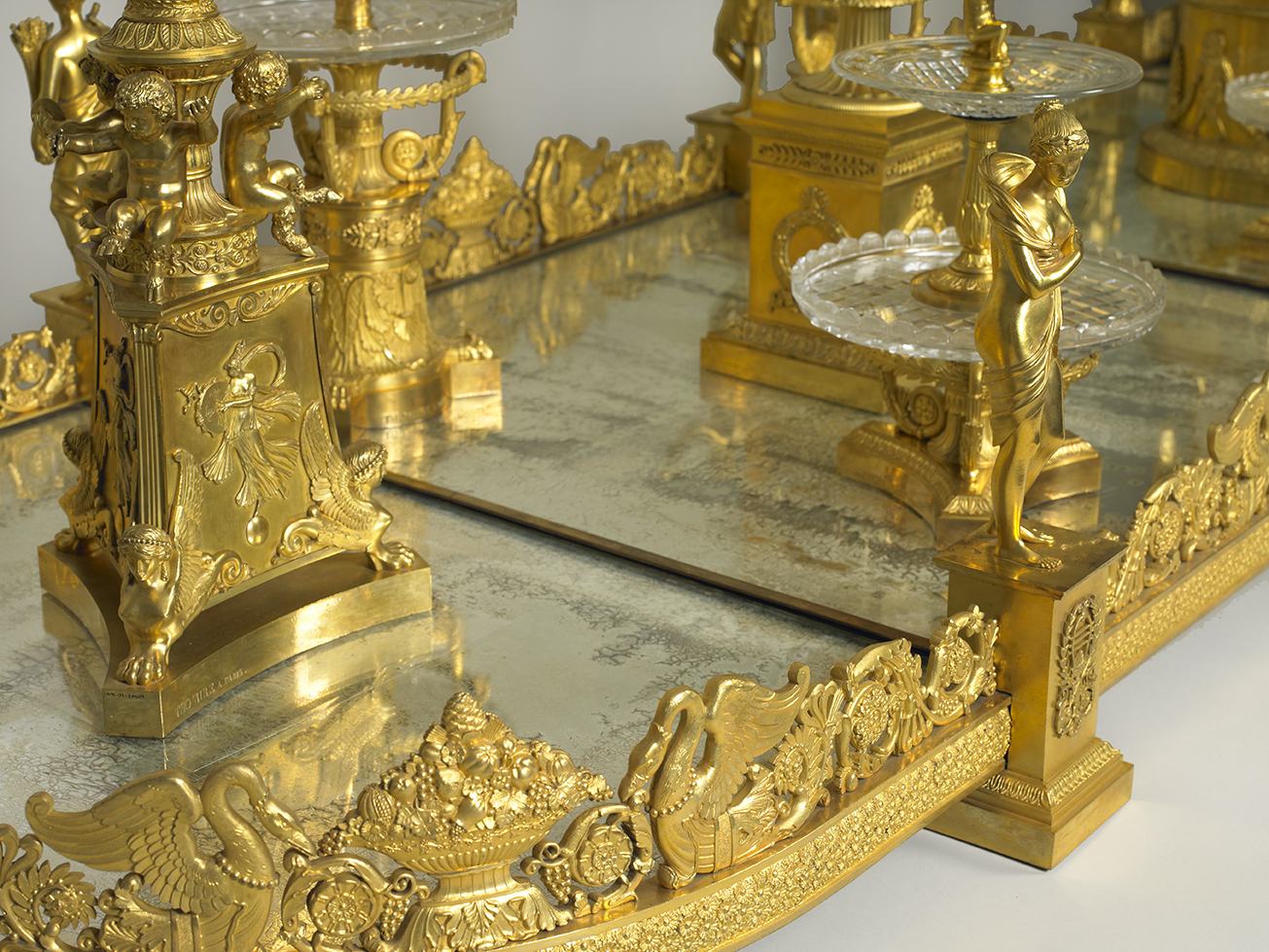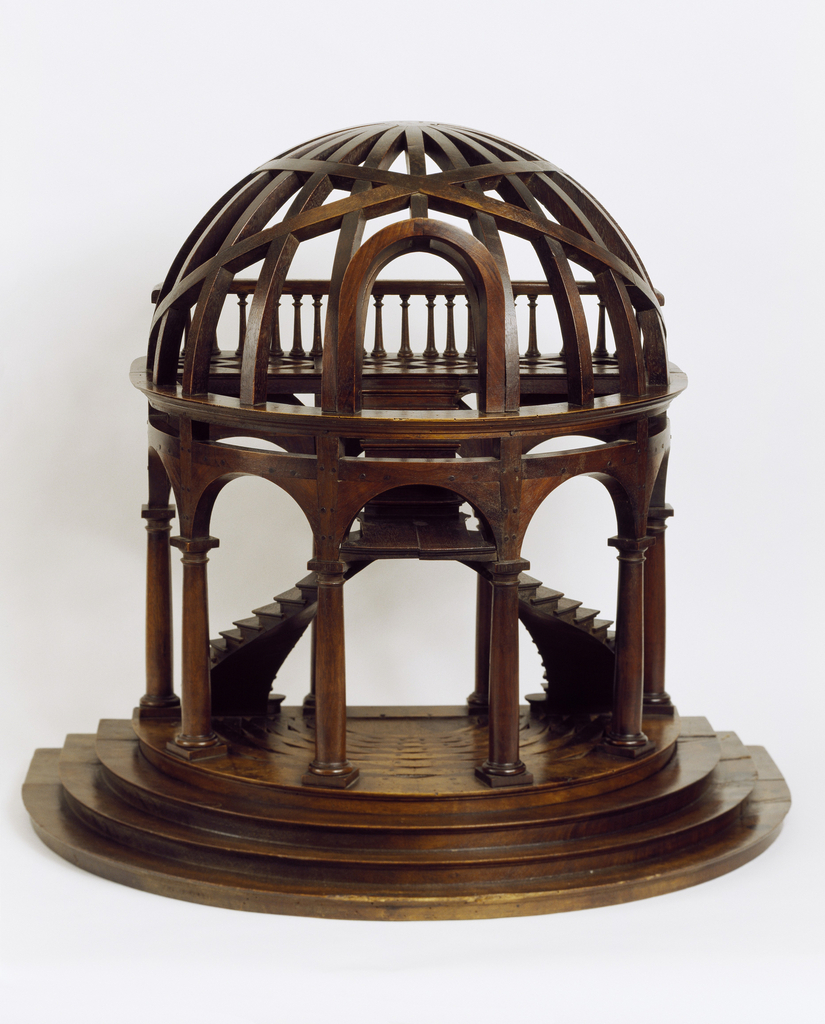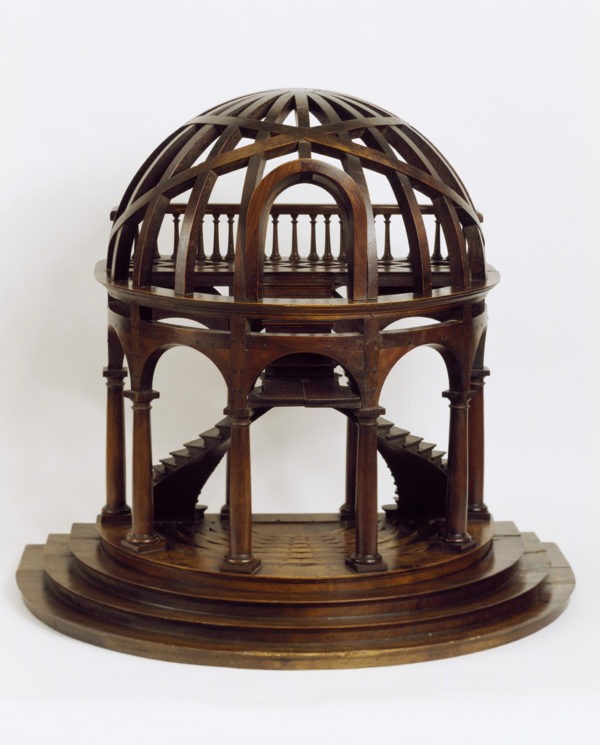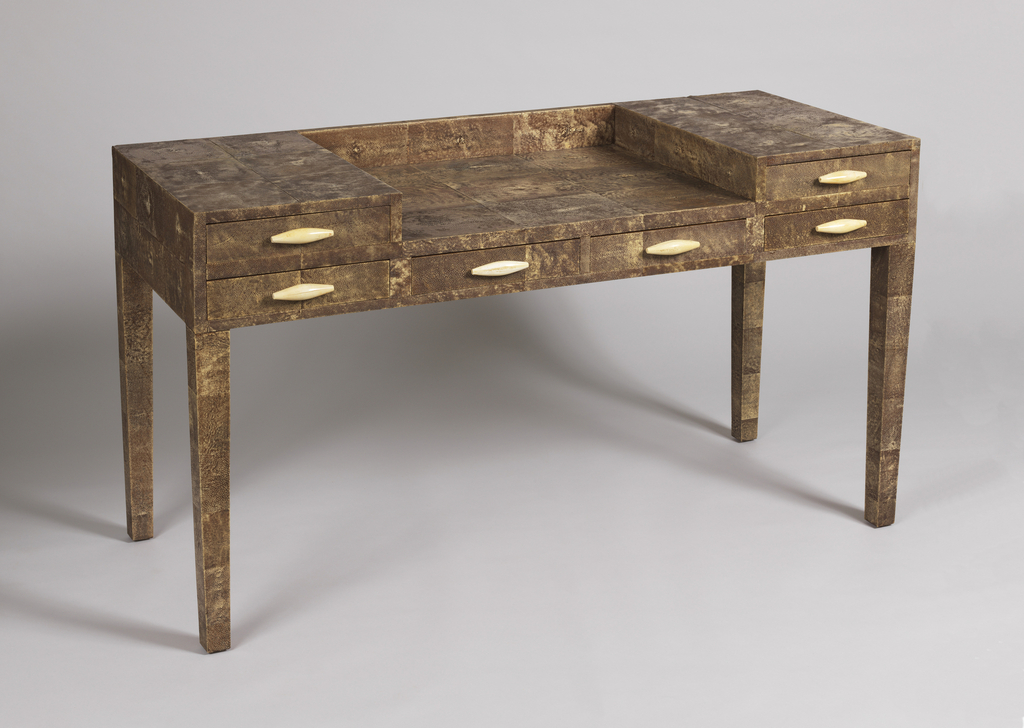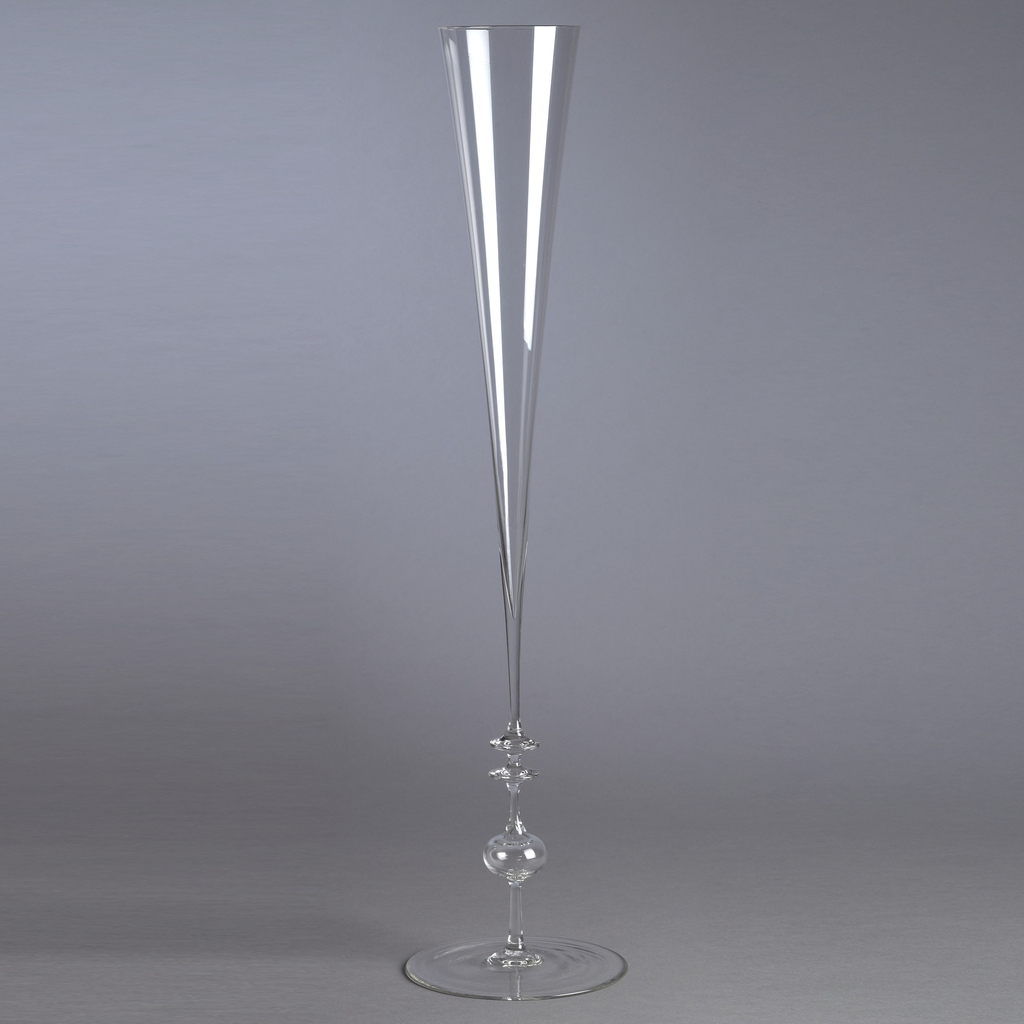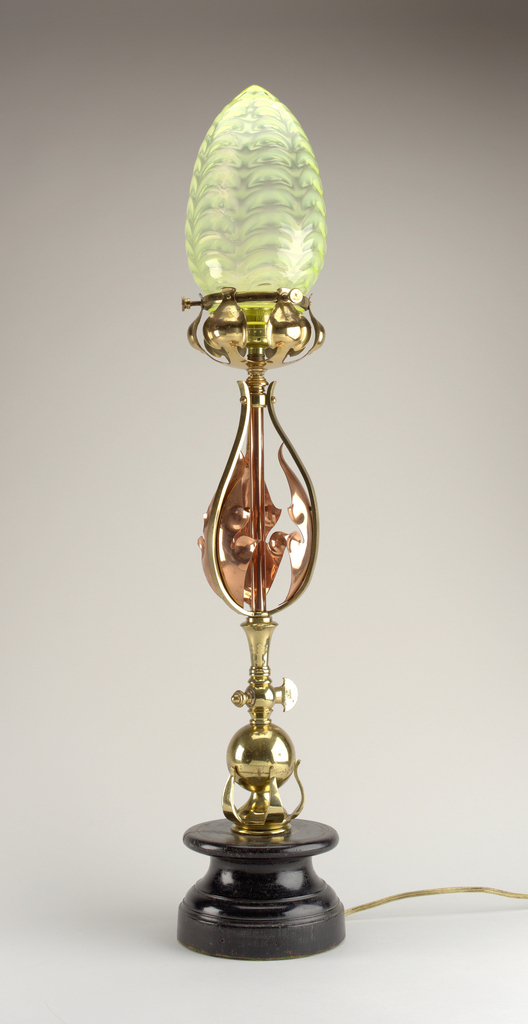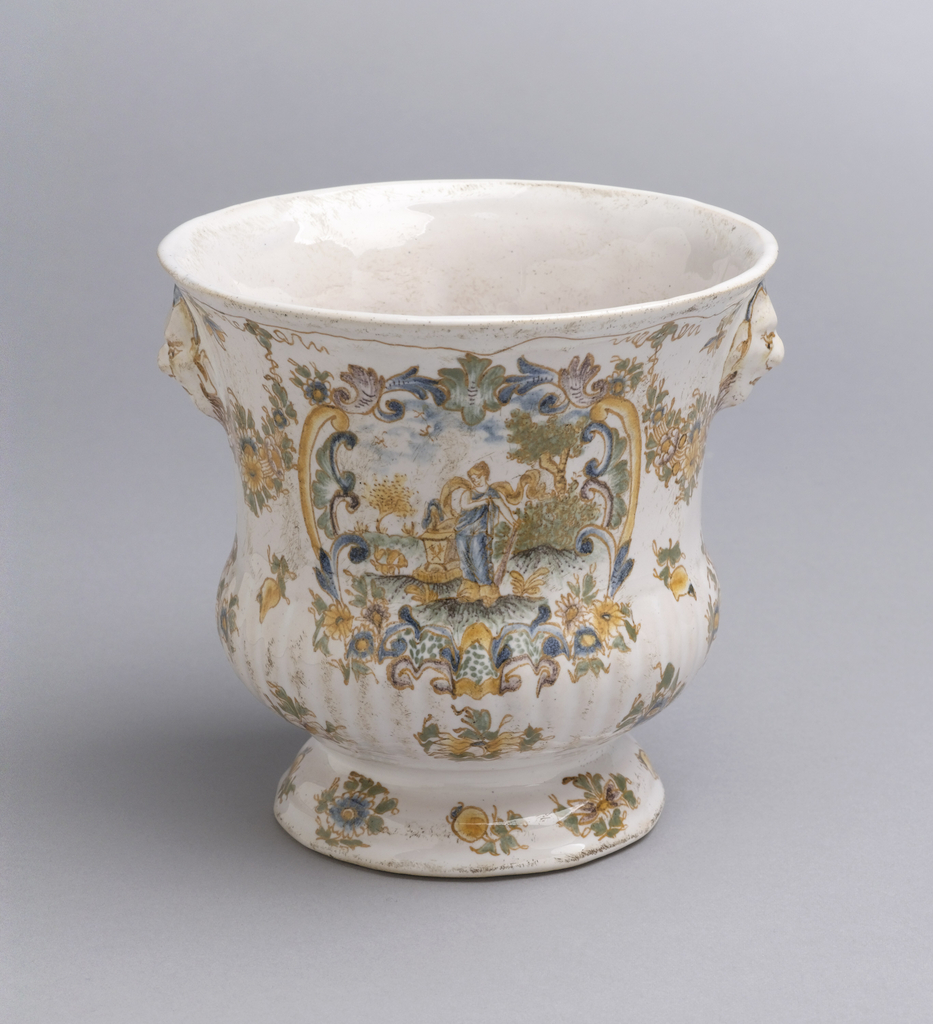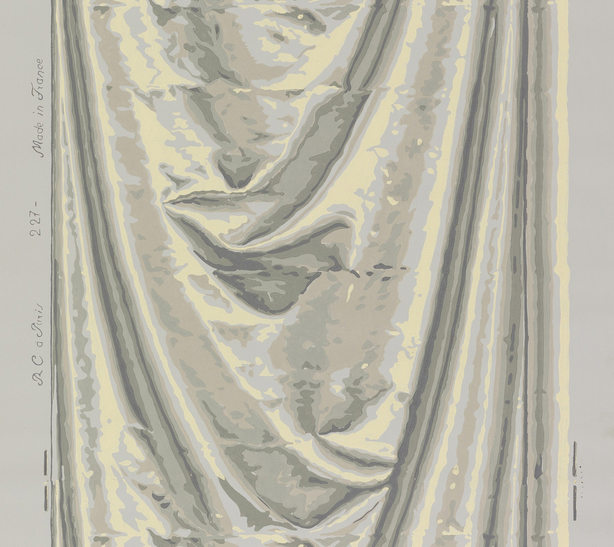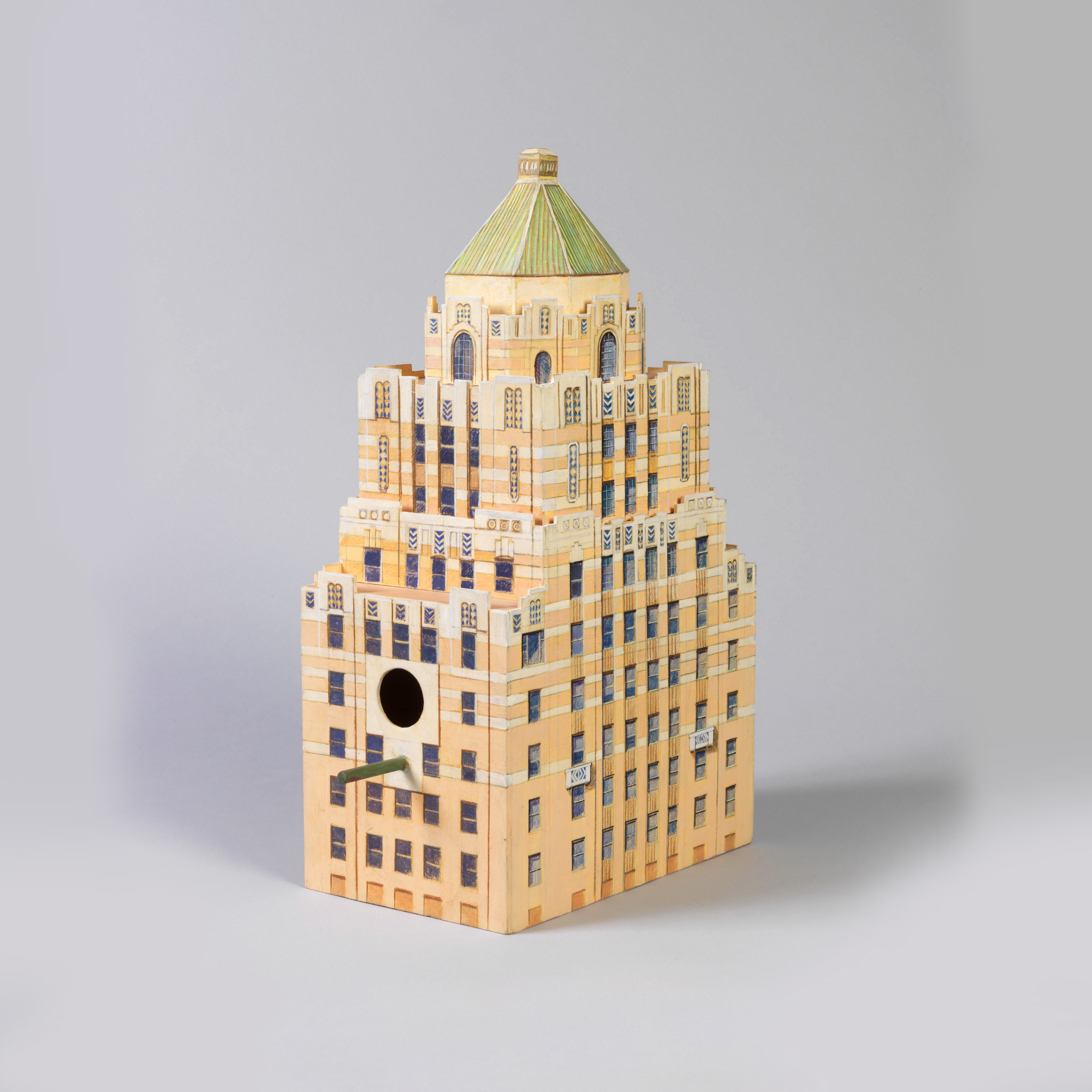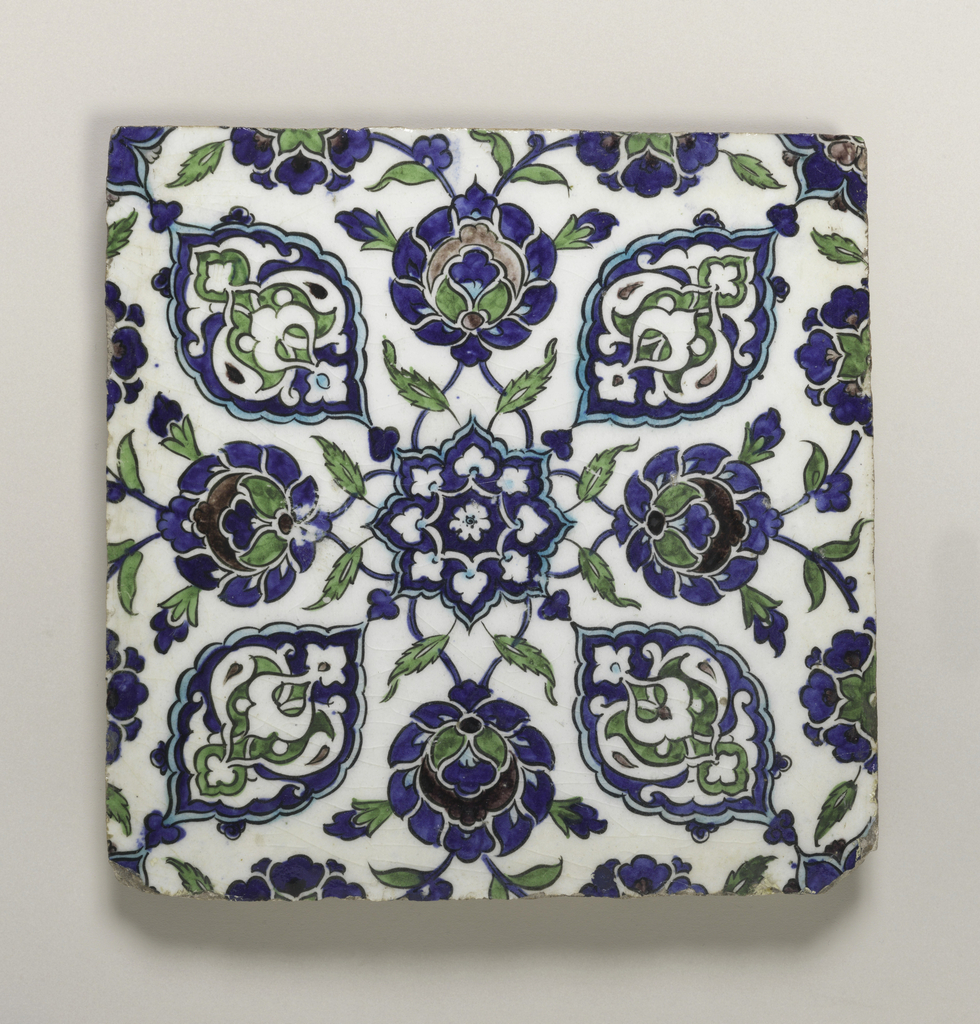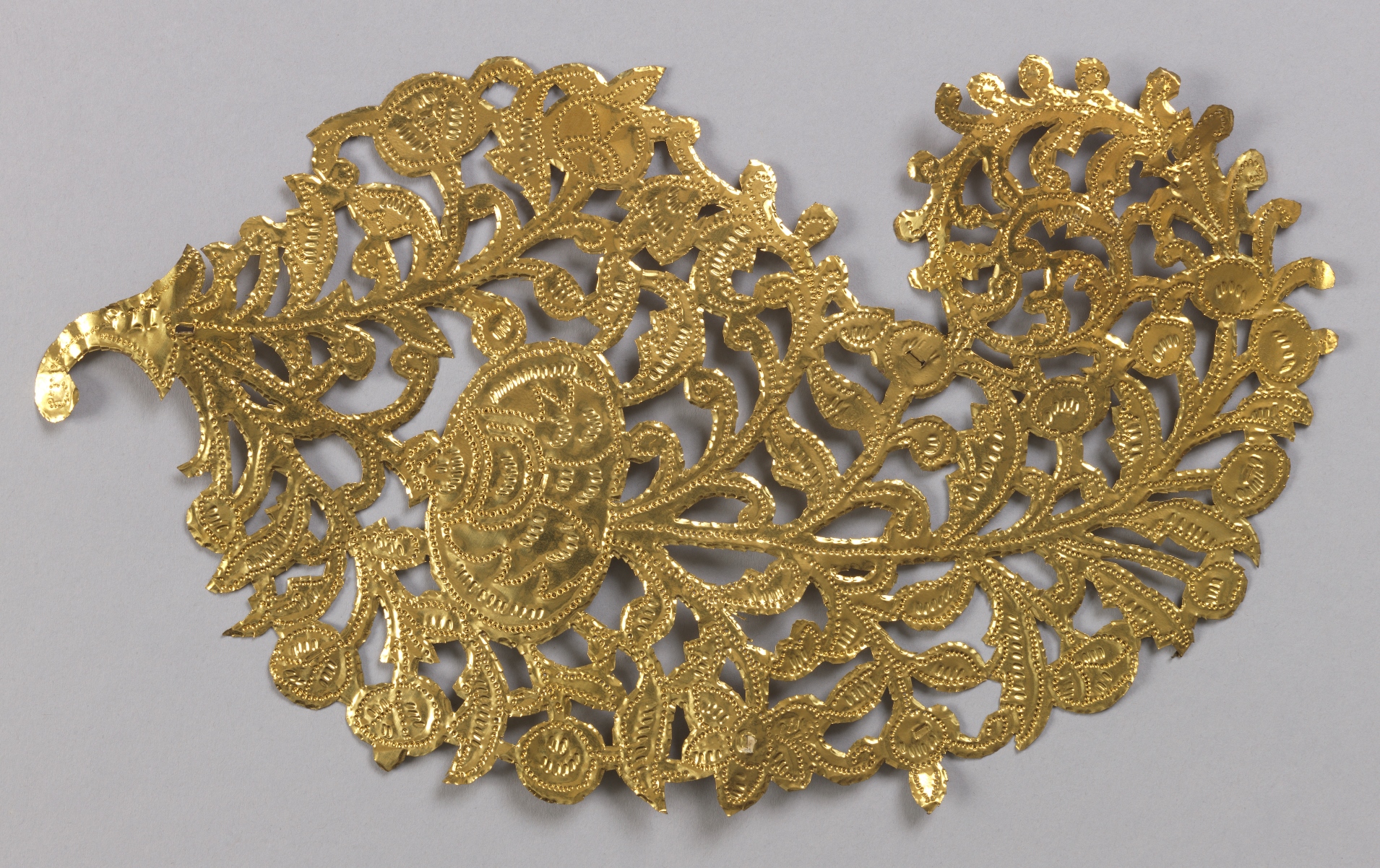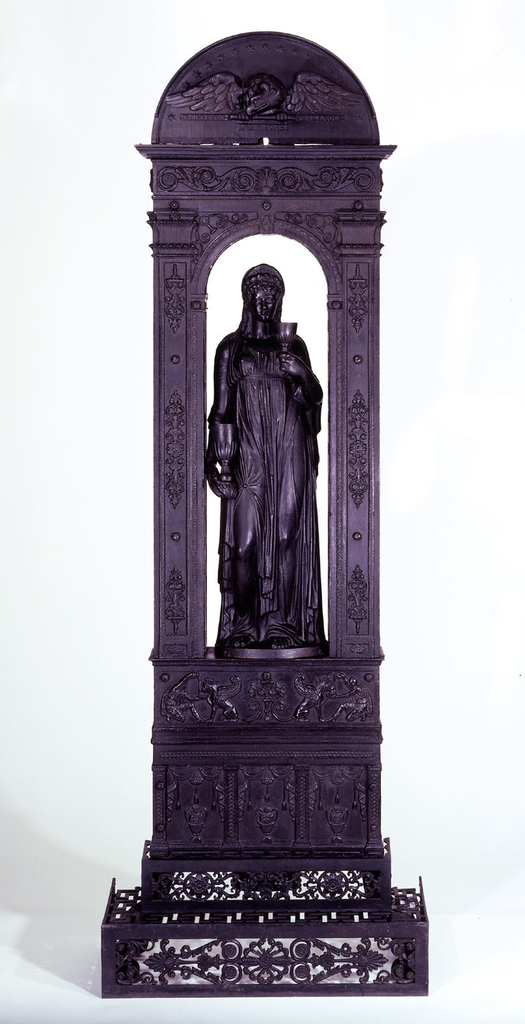From Cooper Hewitt's collection handbook, Making Design, the history of the surtout de table.
In last month’s Short Story, we feasted on dazzling jewelry designs from Cooper Hewitt’s collection. This month, Sarah Coffin, curator and head of product design and decorative arts, introduces us to Mr. and Mrs. John Innes Kane, donors of some of Cooper Hewitt’s most important decorative art pieces. Margery Masinter, Trustee, Cooper Hewitt, Smithsonian Design...
One of a group of staircase models, many of which are masterworks from a guild-like system of design instruction and apprenticeship called Compagnonnage, this model was part of a significant gift, the most significant outside of France, from Eugene V. and Clare E. Thaw. The donors, who both recently died, Clare in June, 2017, and...
When the collector and art dealer Eugene Thaw asked Cooper Hewitt if we would be interested in the collection of eighteenth- to twentieth-century staircase models that he had assembled, he was displaying the generosity of spirit and desire to share his collections that informed much of Gene and his wife Clare’s philanthropy. He knew that...
Sarah D. Coffin and Cynthia Trope discuss this lavish yet modern sharkskin desk, now on view in The Jazz Age: American Style in the 1920s.
Sarah D. Coffin discusses the technical excellence of this Lobmeyr Ambassador vase, now on view in The Jazz Age: American Style in the 1920s.
One of the most wonderful mixtures of new technology-electricity-with elegant hand-crafted materials, in this case glass and metalwork, is this table lamp. It shines forth with the strength of electricity but uses soda glass to create a glow more associated with a pre-electrified era. William Arthur Benson, who was trained as an architect, took up...
This Jardinière was made of faïence, the French term for tin-glazed earthenware based on the name of a town in Italy-Faenza, with which its production is associated from the Middle ages and before. This example is from Moustiers, France, a town in the Alpine area in the southeast of France, where faïence has been made...
Cooper Hewitt mourns the loss of Vladimir Kagan, whose life-embracing style was like that of his furniture. Most examples contain the sensuous and organic forms that reflected his personality, he rephrased his work from the late 1940s to a large outburst of productivity in the 1960s and 70s to a revival of his popularity in...
Cooper Hewitt mourns the loss of Zaha Hadid, the Iraqi-British architect and designer whose dynamically shaped, sculptural buildings and conceptual projects have given life to thought-provoking forms and discussions. Winner of the Pritzker Prize in 2004, she opened new terrain as a woman designing in all parts of the globe. From China to Baku, Rome...
This swishy trompe l’oeil wallpaper is currently on view in the Cooper Hewitt’s interactive immersion room, which is a wonderful place to visit on a dreary February afternoon. Block printed in shades of grey and yellow, this grisaille drapery pattern was produced by French manufacturer, Robert Caillard, and distributed in the United States by the...
Why does this trompe l’oeil architectural model that is also a bird house have anything to do with night clubs? It was a wonderful present to Bobby Short in honor of his many years crooning at the Café Carlyle in the Carlyle Hotel. It combines the artistic talent of Richard Haas, an unknown model maker,...
Decorative tiles from many parts of the Middle East and Asia became very desirable collectibles starting in the 1870s when the enthusiasm for Islamic design pervaded much of the aesthetic movement decorative arts. While the Western purchaser of this tile from the Ottoman Empire is unknown, Lockwood de Forest and Frederic Church were among the...
This brass foil decoration in what we know as a paisley form represents an example of the designs created by Lockwood de Forest, the foremost exponent of Indian design in America during the last quarter of the nineteenth and early twentieth centuries. De Forest went to India in 1881 on his honeymoon to see first-hand...
The whole idea that a radiator could be as large or as decorative as this one seems extraordinary to most twenty-first century viewers. However, if one thinks about it, Joris Laarman created the Heatwave radiator in 2007, formed of rococo-like scrolls in a newer medium, poly-concrete, to decorate a wall. To correctly appreciate the context...
